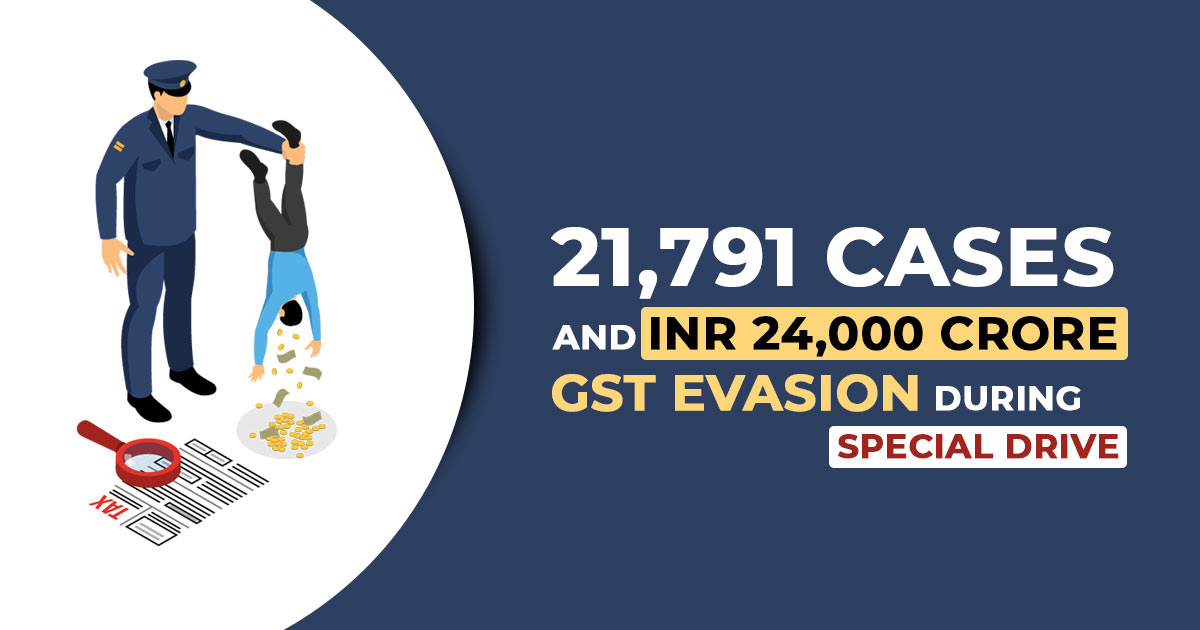
Finance Minister Nirmala Sitharaman announced on Tuesday that during a special two-month drive, GST officers have uncovered 21,791 cases of fake GST registrations and suspected tax evasion totalling over 24,000 crore.
In a written response to a question raised in the Rajya Sabha, the minister stated that instructions have been issued to GST officers to exercise caution and care when utilizing powers such as summons, provisional property attachment, and tax credit blocking. These measures aim to protect honest taxpayers and prevent excessive hardships on taxpayers.
Out of the identified entities, 21,791 (11,392 relating to state tax jurisdiction and 10,399 concerned to CBIC jurisdiction) with GST registrations were found to be fake GST registrations. Sitharaman stated that a total of 24,010 crore (8,805 crore from the states and 15,205 crore from the Centre) in suspected tax evasion was detected during the action.
The minister’s reply was in response to a question regarding the number of businesses identified with fake registrations and the total evasion amount discovered during the special campaign against fraudulent GST registrations carried out by the Central Board of Indirect Taxes and Customs (CBIC) from May 16 to July 15, 2023.
Regarding the issues encountered by e-commerce companies in getting GST registration, particularly those running their businesses on online platforms. Sitharaman mentioned that a simplified registration process for e-commerce players has already been taken into account, considering their unique way of functioning.
This procedure allows e-commerce players to apply for registration in a state or Union Territory where they lack a physical location by providing details of their main business operating place of business located in another state or Union Territory.
Moreover, there have been some amendments made in the GST rules to enhance the registration process, including the implementation of biometric-based Aadhaar authentication for registrants under the radar of high-risk, along with document verification.
The implementation of this pilot project commenced in Gujarat and was subsequently expanded to include Puducherry in July, followed by Andhra Pradesh in November.
Additionally, entities are required to furnish details of their bank account, name, and Permanent Account Number card within 30 days of registration approval or before submission of the statement of outward supply, whichever comes earlier.
Failure to provide valid bank account details within the stipulated time frame will result in automatic suspension by the system. However, if the registered persons comply with this requirement afterwards, the system-based suspension will be automatically accepted.









